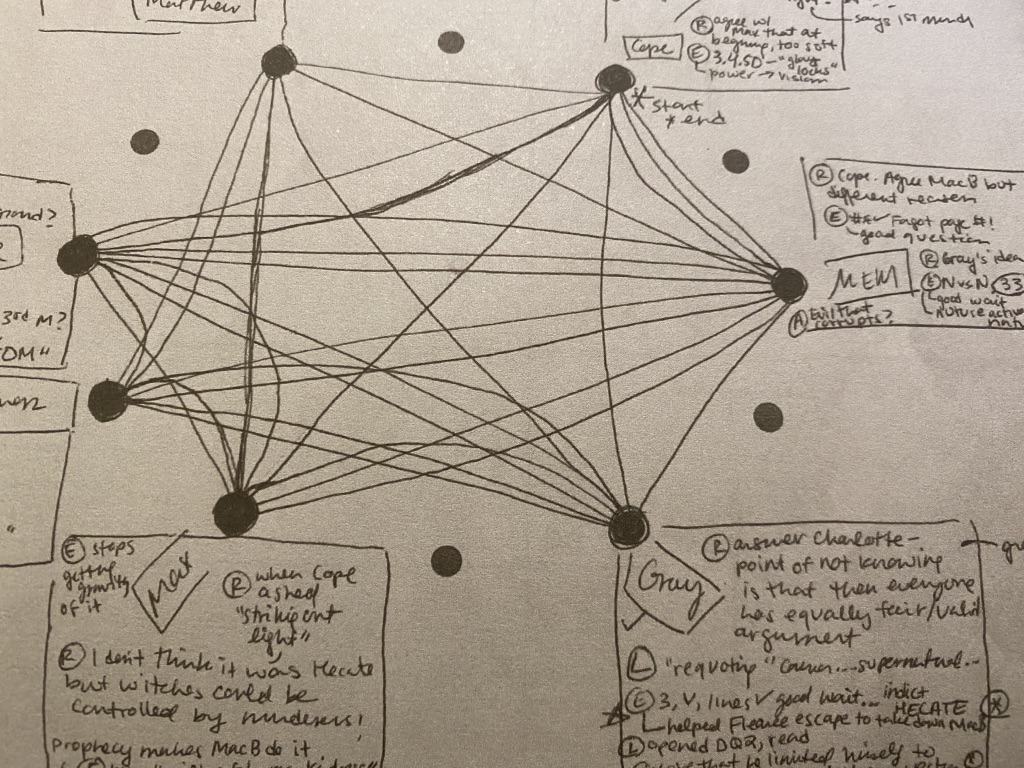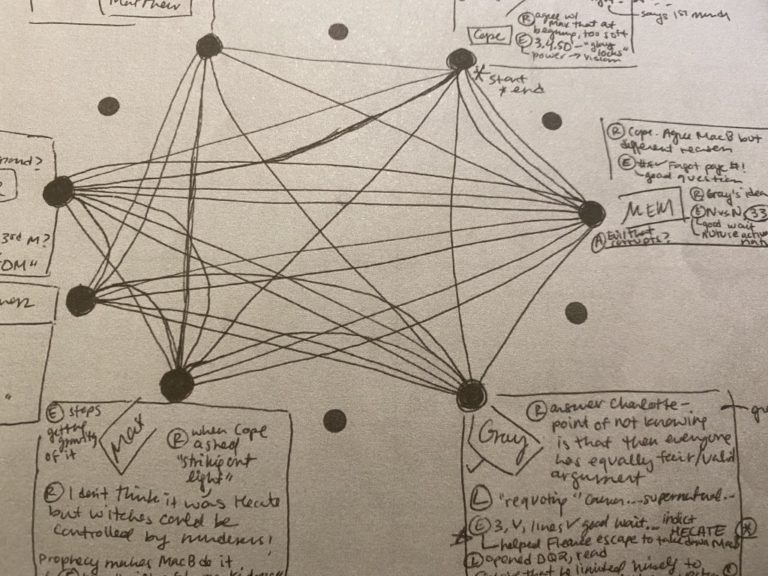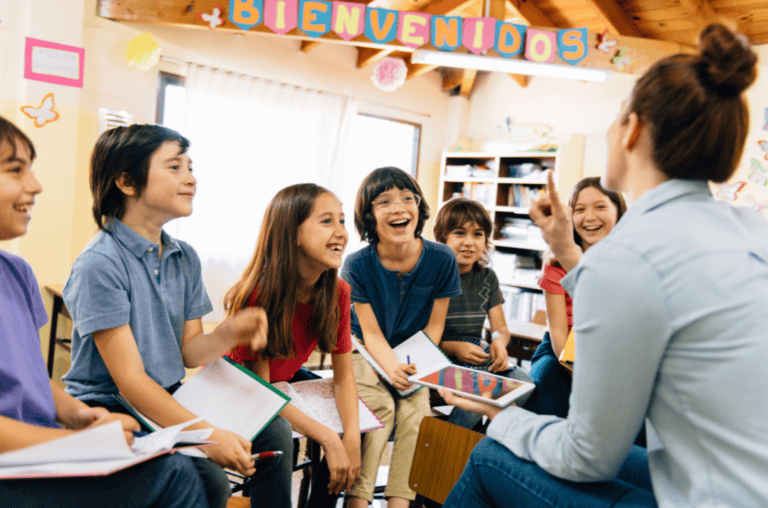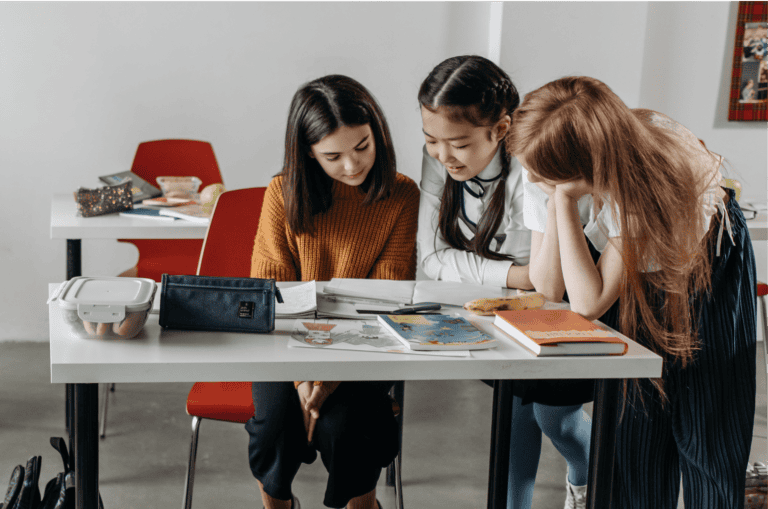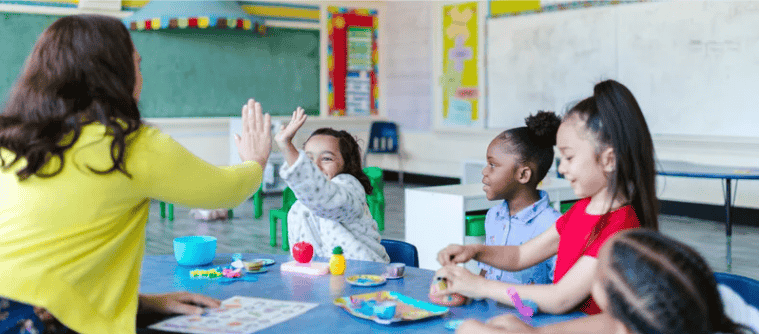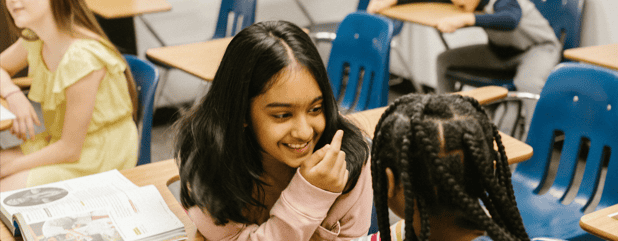Protagonists: Ghassan Gammoh
The Protagonists series highlights the main characters of our mission: the teachers out there hustling to make their students feel known, heard, and challenged through student-led discussion.
Ghassan Gammoh, History teacher at King’s Academy, Jordan
Hometown: Born and raised in Saudi Arabia in an expat community. I consider my hometown to be everywhere and nowhere.
Favorite teacher growing up: who and why? John Leistler. He’s been my colleague as I’ve started teaching. He taught me AP World History and Art History, was my dorm faculty leader and then my friend and then my colleague. Eventually, I took over and taught his class. He loved us unconditionally and was energetic, passionate about his work. He was a theatre director — I did plays with him — and his relentless positivity and energy hooked me and got me into teaching. He’s the reason I’m a teacher.
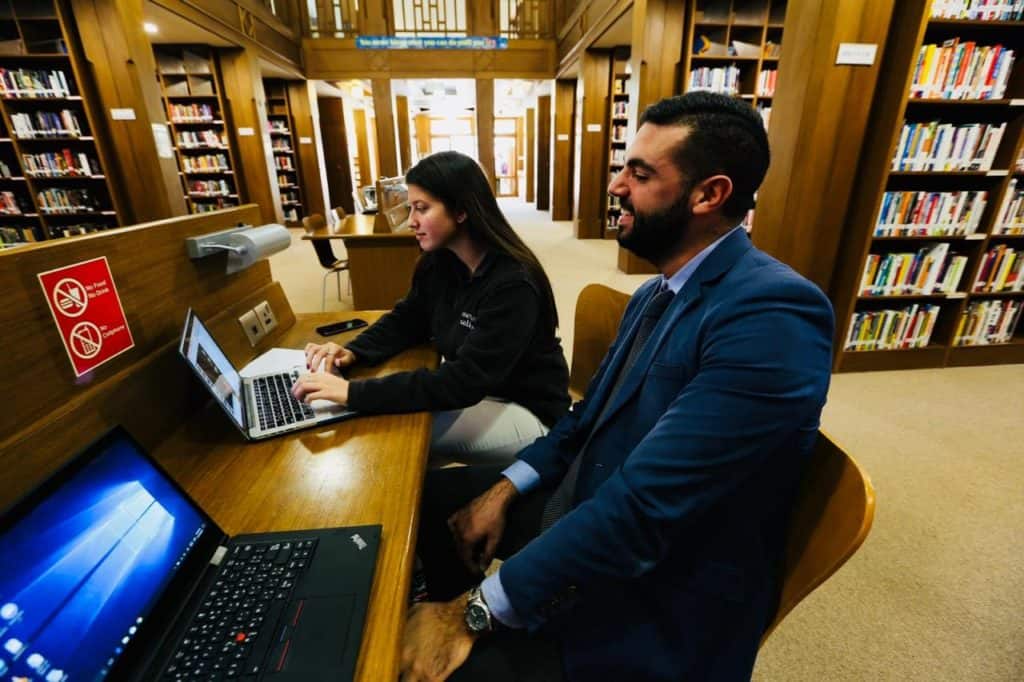
Describe yourself as a student in three words: Hardworking, organized, passionate.
Current City, School, Teaching Assignments (?) I teach AP Art History, Modern Jordanian History, and Modern Middle Eastern History at King’s Academy in Madaba-Manja, Jordan grades 9-12.
Favorite historical figure (or best line from history?) My favorite historical figure is Elie Wiesel. I’ve met him personally (before he passed away). My favorite line is from Night — that line about how what he saw/experienced shook to the core his faith in God. The power of reading and teaching his words reminded us all of resilience and of trying to make the most of the situation we were in (during the Coronavirus pandemic). He really helps my students and me empathize and learn how to not complain about silly things.
Favorite literary character (or best line from novel?) Tita de la Garza from Like Water for Chocolate. I love her life and what she goes through; the organization of chapters around recipes, her role in her family, the restrictions that her family ties on her and her navigation amid/despite that. I really love how the author writes about her and her resilience. A similar favorite character is the daughter from The Glass Menagerie.
Favorite school supply? My favorite item is a stapler. I need my stapler on me at all times. It keeps student work organized when it’s printed out. Also my pencil case.
Pet peeve about class (student-led?) discussion? When kids try to invite other kids into the conversation in a way that’s unnatural and forced. It puts the kid that is shy or hesitant on the spot in a way when they’re not really ready to join into discussion. That, and also the fact that some students are uncomfortable with silence; students can learn not to fill the space with sound.
Favorite moment of class discussion? When students build upon others’ work, and name them/name that they were their inspiration for a new observation, that is deep and meaningful.
Biggest challenge to good discussion in a virtual classroom? I think it’s probably not being able to see the body language of all your peers at the table. When we see how people are physically presenting, it affects the way we ask them to engage; because we can’t diagnose physical language, that’s a big challenge. I preferred smaller groups virtually.
Text you count on to inspire conversation? “The Great Hall of the Bulls” from Lascaux. I love talking about what homo sapiens were thinking, painting, and drawing on walls at the start of human history, and connecting it to our creativity and imagination today. Frieda Kahlo’s work, with psychology and inner battles and struggle, is also deeply inspiring.
What do you nerd out about? As a teacher — Project-based learning. I love to think about creative, technologically-savvy projects that demonstrate learning. In tandem with that, I geek out about rubrics. As a person outside of teaching — reading. Reading in Arabic, novels in Arabic written by female authors from Saudi Arabia, Jordan, and Syria.
What is your wish for this world? That we will all make the extra effort to empathize and try to understand our individual privileges and how that places us on a larger spectrum. So we’re better understanding of our position and ways that we can serve, care, and give to others who don’t have the same sway.
When historians recount 2020, what will they be especially fascinated by? I don’t think pandemics are a new thing. They’ve happened in history before. Because of technology, we’re seeing so much of it, and we’re so exposed to it so much. The biggest thing that historians will marvel at is the lack of care and awareness toward the environment, which is a branch out from coronavirus. We see these examples of nature healing itself; historians will look back and say “wow, they were not listening to scientists, in the biggest and most powerful countries.” It’s shocking and it’s really scary.
One prediction for the future of schools? I think that there is going to be more online integration and more online schools. I’m interested in starting an IB online program, because I think that there is so much that can be done online in terms of collaboration and global outreach, which can raise empathy considerably. We’re going to see the use of online tools and platforms much more. Google Classroom is going to be religion in many schools. There are pros and cons to this. Nothing can replace the physical presence of being at school.
Best advice given to you by a department chair or supervisor? The first was four years ago after my first appraisal, from the Dean of Students– “you need to find your personal balance and then chat.” I needed to find a balance of personal and professional balance; I think I’ve worked on that. The second, “all the magic is in the classroom.” I really agree — it’s the best place to be in a school. I was always thinking that I wanted to be a school leader, and I think that when my department head told me to live in the moment and do my best — that what was meant to be for me would be — as a young teacher, I need that perspective. Learning how to bask in your teaching and not be so hungry. I need to remember that when there’s a niche for me, I’ll be there. Schools as institutions can underappreciate, but recognizing that the ultimate appreciation is in the results of my teaching, in my students — that’s powerful.
Educator-Influencer you count on? First place you turn for classroom advice? I’m subscribed to Educator’s Notebook and the Marshall Memo. I just completed my certification through TeachNow, and that global cohort is an enormous resource for me. My Masters’ cohort at Klingenstein. And then, of course, my colleagues. I’ve learned the most from my colleagues in all of these places. I do like Edutopia and other sources, but colleagues are best.
Better discussions will _______________. Build more empathy, create better diplomats.
